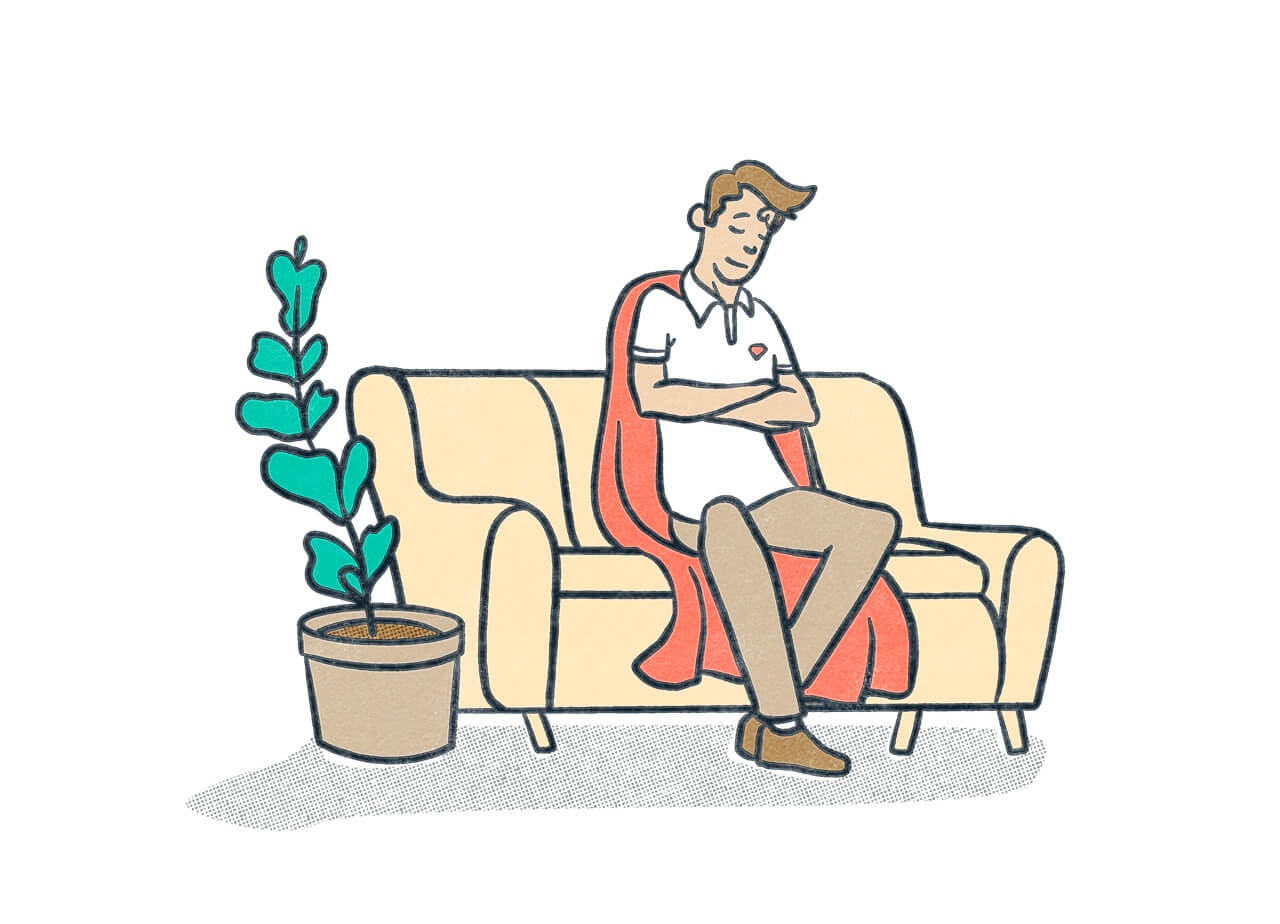The reality is our “need” to stay “productive,” especially when we feel the stakes are high actually undercuts our efforts. It is creating cerebral congestion (Gesundheit!). Giving ourselves small breaks enhances our ability to retain information and remain focused. In other words, rest is a superpower.
“Idleness is not just a vacation, an indulgence or a vice; it is as indispensable to the brain as vitamin D is to the body, and deprived of it we suffer a mental affliction as disfiguring as rickets,” writes essayist Tim Kreider in his The New York Times piece “The Busy Trap.”
It may seem counterintuitive to back off, but it is actually 100% what’s needed. Kreider emphasizes this point:
“The space and quiet that idleness provides is a necessary condition for standing back from life and seeing it whole, for making unexpected connections and waiting for the wild summer lightning strikes of inspiration—it is, paradoxically, necessary to getting any work done.”
How is Rest a Super Power?
According to the Scientific American article titled “Why your brain needs more downtime,” resting increases productivity, replenishes attention, solidifies memories, and encourages creativity.
But resting doesn’t just mean sleeping. While sleep definitely improves memory, there is also evidence that memory consolidation and information retention happens when we are awake but resting.

Resting, while it may feel idle to us, doesn’t mean our brain is inactive. As noted by Dr. Viatcheslav Wlassoff, giving your brain a break improves your productivity. Dr. Wlassoff says:
“When a person is resting, the brain wanders and engages in default mode (DM), something that is suppressed when working or focusing on something. DM has an essential role in mental development: switching to DM helps a person to recall memories, strengthen experiences, ponder the future, contemplate social behavior, and much more.
These moments of downtime are the periods when we form a better understanding of self, engaging in self-dialogue…. It seems that idle time is, in actual fact, a phase of memory consolidation, something that has been proven to be important in various experiments in both humans and animal models.”
Learning Happens When We Rest
Mental downtime ensures that temporary memory doesn’t get erased. Let’s say that again – you need mental downtime to retain information. In a 2019 study by the National Institutes of Health, researchers found that our brains solidify the memories of the new skill or information we just learned seconds earlier when we take a short rest right after learning it.

According to Dr. Leonardo G. Cohen, senior author of “A Rapid Form of Offline Consolidation in Skill Learning,” published in the journal Current Biology, “Everyone thinks you need to ‘practice, practice, practice’ when learning something new. Instead, we found that resting, early and often, may be just as critical to learning as practice.”
During the experiment, participants were shown a series of numbers on a screen and asked to type the numbers as many times as possible with their left hand for 10 seconds, take a 10-second break, and then repeat this cycle 35 more times.
Brain Waves Don’t Lie
Something interesting and unexpected happened when the researchers looked at the volunteers’ brain waves.
According to Dr. Marlene Bönstrup, leader of the study, “I noticed that participants’ brain waves seemed to change much more during the rest periods than during the typing sessions. This gave me the idea to look much more closely for when learning was actually happening. Was it during practice or rest?”
By reanalyzing the data and looking at the brain waves, they found that participants’ performance improved primarily during the short rests, and not during typing. Specifically, they found that the changes in brain waves’ size, called beta rhythms, correlated with the improvements the participants made during the rest periods.
Bottom line: your brain is doing important work when you rest.

Making Rest Work For Us
The science is clear: rest can help us retain the information we just learned. Sometimes it’s hard to make yourself take breaks. Here’s how to do it:
-
Study in intervals
Spend short intervals of 15-30 minutes studying intensely. Then, follow immediately by a comparable rest period of “brain-dead” activity without engaging in intense stimuli or a new learning task (aka chill out). During the brain downtime, the material that was just learned is consolidated into long-term memory because there are no mental distractions to erase it.
-
Use the Pomodoro Technique
Break your studying into 25-minute intervals called Pomodoros. At the end of each Pomodoro, take a five-minute break where no work is done. After the fourth Pomodoro, take a longer break of 15 to 20 minutes.
-
Take a walk
Moderate exercise provides immense cognitive benefits. It helps us focus and stay alert. To get more specific, exercising four hours after learning, but not immediately after, improves our ability to retain information long term.
-
Take a nap
Yes, you read that right. A short nap effectively recharges your battery by increasing your alertness and decreasing mental fatigue. In fact, napping may improve performance on certain tasks, like retention and focus, more than caffeine. And the timing of a nap provides different benefits: An earlier nap provides more REM sleep and boosts creativity, while a nap later in the day is more physically restorative.
As with everything in life, balance is important when you study. Regardless of how you choose to rest, make sure you give yourself a little break from time to time.

 learning science
learning science